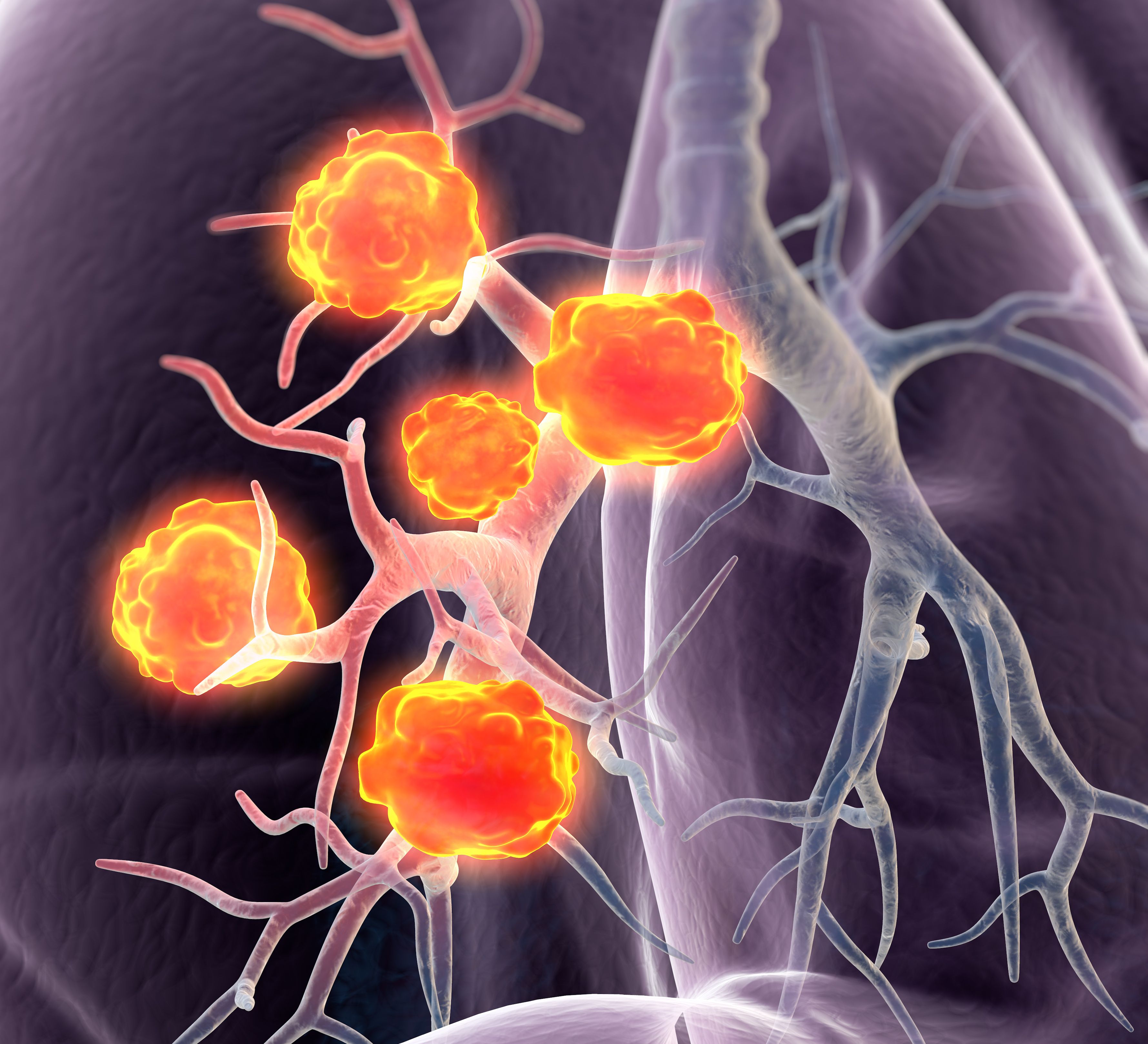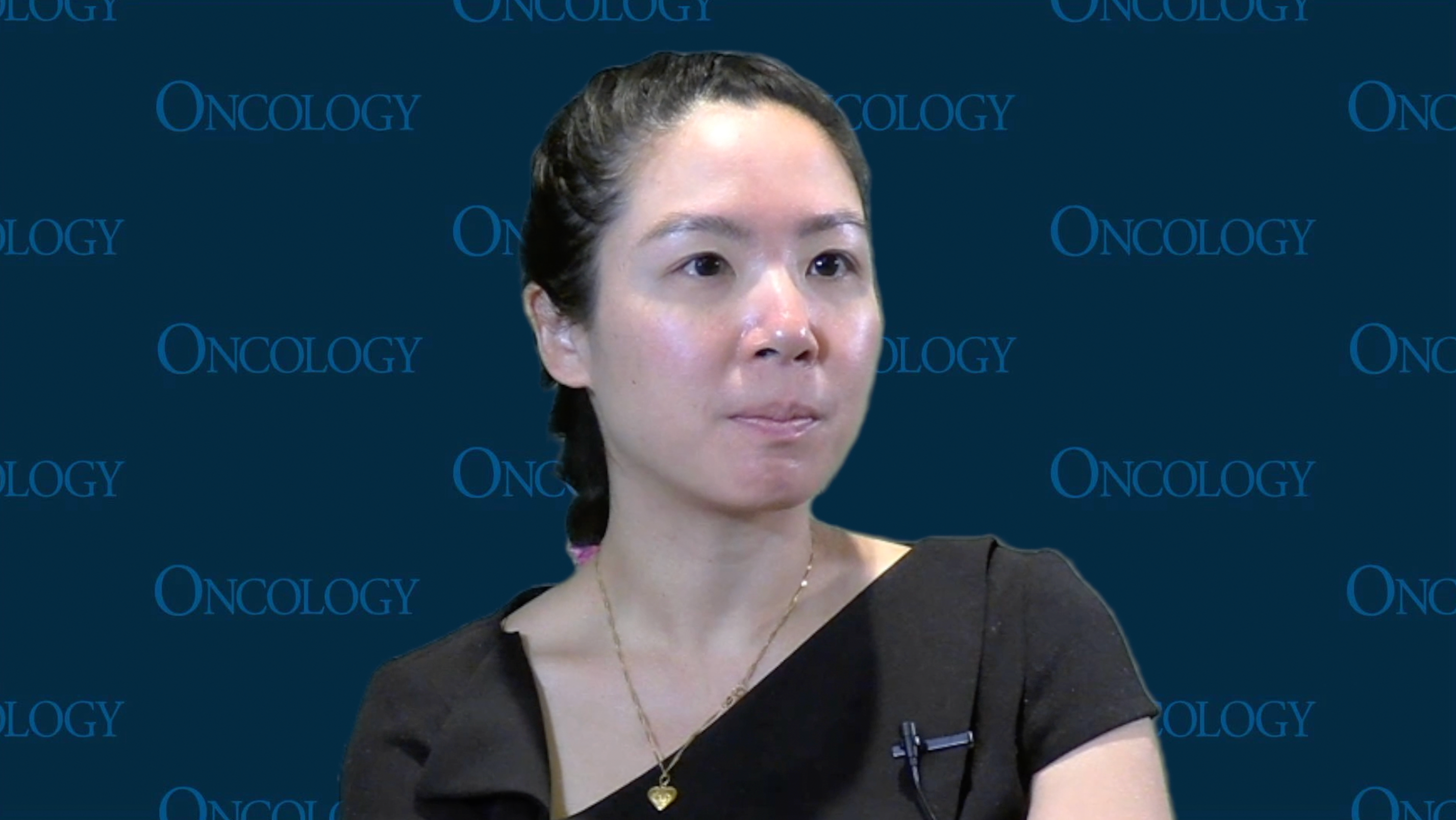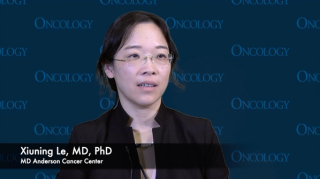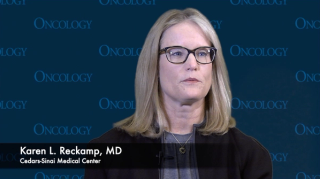
Non-Small Cell Lung Cancer (NSCLC)
Latest News
Latest Videos
CME Content
More News

Findings from the phase 3 COSMIC-021 trial, comparing the effect of cabozantinib alone or in combination with atezolizumab vs docetaxel for advanced non–small cell lung cancer previously treated with immunotherapy, though promising, highlighted further need for randomized data to confirm the regimen’s benefit in the second-line setting, according to Joel W. Neal, MD, PhD.

Patients with RET fusion–positive locally advanced/metastatic non–small cell lung cancer can now receive treatment with RET inhibitor selpercatinib, which was approved by the FDA.

Charu Aggarwal, MD, MPH, discussed findings from a study of the replication-deficient adenovirus CAN-2409 in advanced non–small cell lung cancer.

At ASCO 2022, Catherine A. Shu, MD, spoke about the CHRYSALIS-2 trial which investigated the use of amivantamab plus lazertinib in patients with EGFR-mutant non–small cell lung cancer following progression on a prior EGFR inhibitor.

Findings from a pooled analysis indicated that a decrease in circulating tumor DNA was associated with improved clinical benefit in patients with non–small cell lung cancer treated with immune checkpoint inhibitors.
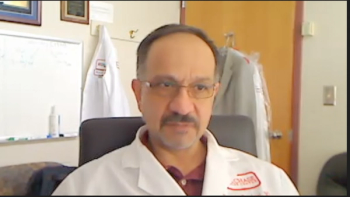
Hossein Borghaei, DO, MS, discussed where investigators may drive future research following the phase 2 Lung-MAP trial examining pembrolizumab and ramucirumab in previously treated advanced non–small cell lung cancer.

Roy S. Herbst, MD, PhD, considers next steps in the management of patients with non–small cell lung cancer harboring genomic drivers.
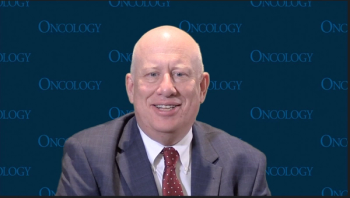
Alexander I. Spira, MD, PhD, FACP, details the safety profile of single-agent adagrasib in patients with KRAS G12C–mutated advanced or metastatic non–small cell lung cancer, as well as plans for future research following the phase 1/2 KRYSTAL-1 study.

Mary E.R. O’Brien, MBBS, discussed results of an exploratory analysis of the phase 3 PEARLS/KEYNOTE-091 study examining pembrolizumab in resected non–small cell lung cancer.

Trastuzumab deruxtecan demonstrates clinically meaningful benefit in patients with non¬–small cell lung cancer harboring HER2 mutations, according to results from the DESTINY-Lung02 trial.

Results from the phase 3 IPSOS trial showed a nearly doubled rate of 2-year overall survival with atezolizumab in patients with advanced non–small cell lung cancer.

Findings from the phase 3 CodeBreaK 200 trial show improved progression-free survival with sotorasib vs docetaxel in previously treated KRAS G12C-mutant non–small cell lung cancer.
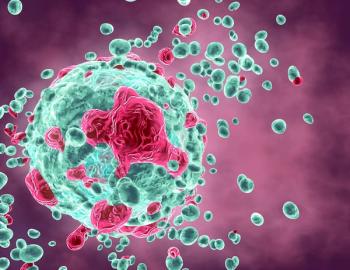
Results from the phase 3 CANOPY-A trial failed to show improved disease-free survival with adjuvant canakinumab in completely resected non–small cell lung cancer.

Overall survival remained durable in patients with metastatic non–small cell lung cancer when tremelimumab was added to durvalumab plus chemotherapy in the frontline setting.

Results from the phase 2 NEOpredict trial showed that the primary end point of feasibility of treatment in patients with surgical resection of non–small cell lung cancer was reached in those given preoperative nivolumab plus relatlimab.

Findings from a pooled analysis indicated that reductions in ctDNA were associated with improved clinical benefit across multiple end points in patients with non–small cell lung cancer treated with immune checkpoint inhibitors.
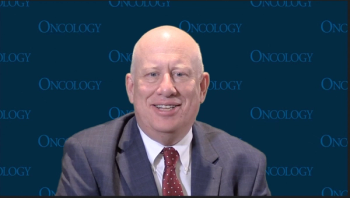
Treatment with adagrasib monotherapy yielded an overall response rate of 42.9% in patients with KRAS G12C–mutated advanced/metastatic non–small cell lung cancer, according to Alexander I. Spira, MD, PhD, FACP.

Blood circulating soluble proteins may be an effective and accessible biomarker for predicting response to immunotherapy among patients with squamous cell lung cancer.

Patients with previously treated KRAS G12C–mutated non–small cell lung cancer experienced superior survival benefit following treatment with sotorasib compared with docetaxel.

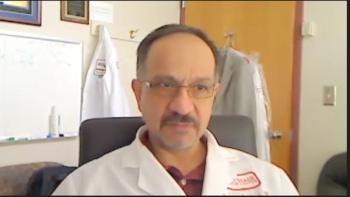
In an interview with CancerNetwork®, Hossein Borghaei, DO, MS, details the promising body of ongoing research assessing biomarkers in patients with non–small cell lung cancer who are candidates for treatment with immunotherapy.

Long-term follow-up data of abivertinib for patients with EGFR T70M–mutated advanced non–small cell lung cancer highlighted promising responses.

Health Canada approved nivolumab in combination with platinum-doublet chemotherapy for the neoadjuvant treatment of patients with resectable non–small cell lung cancer prior to surgery.

Early findings indicate that CLN-081 may hold promise in patients with advanced EGFR exon 20 insertion mutation–positive non–small cell lung cancer.
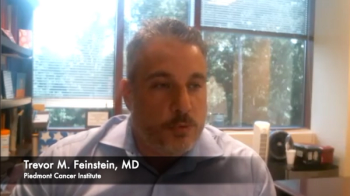
Trevor M. Feinstein, MD, spoke about how quality of life was improved for patients with EGFR wild-type stage IIIB/IV non–small cell lung cancer receiving plinabulin in addition to docetaxel the phase 3 DUBLIN-3 trial.


